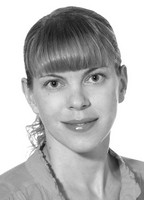Young people's motor activity encouraging fitness technologies based on global approach
Фотографии:
ˑ:
Teoriya i praktika fizicheskoy kultury №3 2017, pp.54-56
UDC 796.012.1
PhD, Associate Professor T.N. Shutova1
Dr.Hab., Professor L.B. Andryushchenko1
1Plekhanov Russian University of Economics, Moscow
The Russian national education system is in the process of the Bologna System implementation project designed to help integrate the national higher school to the European educational universe. The study was designed to consider the promising ways of the modern fitness technology application to counter obesity viewed by many as a global epidemic. It is in this context that the international research community has given increasingly high priority to the physical education system reforms to secure high educational and health standards worldwide. The article considers theoretical basics for the applicable fitness technologies and their benefits for the academic physical education system provided the relevant training processes are modernized with their contents, values, components and technologies being duly revised. An educational experiment under the study was used to develop and test the design and contents of the fitness-driven physical education process and offer a frame primary education model. As a result, a physical fitness building educational model was developed to help train for the GTO Complex tests via the fitness-driven practices and sets of test exercises.
Keywords: global approach, motor activity, university students, physical culture, fitness, test exercises, health.
References
- Averyasova Y.O., Andryushchenko L.B., Aliev T.D. Formirovanie prostranstva fizicheskoy kultury v sisteme professionalnoy podgotovki studentov [Formation of physical culture space in university vocational training system]. Moscow: TR-print publ., 2015, 170 p.
- Andryushchenko L.B. Pedagogicheskaya sistema formirovaniya fizicheskoy kultury studencheskoy molodezhi [Educational system of formation of students' physical culture]. Volgograd: Niva publ., 2006, 176 p.
- Menkhin Y.V., Menkhin A.V. Ozdorovitelnaya gimnastika: teoriya i metodika [Fitness training: Theory and Methods]. Rostov-on-Don: Fenix publ., 2002, 384 p.
- Mironov A.O. Povyishenie emotsionalnosti zanyatiy po fizicheskomu vospitaniyu so studentami pedagogicheskih spetsialnostey. Novaya nauka: sovremennoe sostoyanie i puti razvitiya [Emotionalization of physical education lessons with students of teaching professions. Innovative science: current status and ways of development]. Ufa: Agentstvo mezhdunarodnyih issledovaniy, 2016, no 2-1 (62), pp. 43-45.
- Saykina E.G., Ponomarev G.N. Semanticheskie aspekty otdelnykh ponyatiy v oblasti fitnesa [Semantic Aspects of Single Concepts in Fitness Area]. Teoriya i praktika fiz. kultury, 2011, no. 8, pp. 6-10.
- Saykina E.G., Ponomarev G.N. Fitnes-tekhnologii: ponyatie, razrabotka i spetsificheskie osobennosti [Fitness technology: concept, design and specific features]. Fundamentalnyie issledovaniya, 2012, pp. 890-894.
- Stolyarov V.I. Innovatsionnye kontseptsii sovremennogo fizicheskogo vospitaniya (otechestvenny i zarubezhny opyt) [Innovative concepts of modern physical education (domestic and foreign experience).]. Materialy Mezhdunar. nauch.-prakt. kongr. "Natsionalnye programmy formirovaniya zdorovogo obraza zhizni" [Proc. Intern. res.-pract. congress "National healthy lifestyle programs"]. Ministry of Sport of the Russian Federation, Moscow Department of Education, RSUPCSYT (GTsOLIFK). Vol. 1, Moscow, 2014, pp. 32-37.
- Shutova T.N., Kuz'min M.A., Kondrakov G.B., Mamonova O.V. Integratsiya traditsionnykh vidov sporta i fitnesa v fizicheskom vospitanii studentov [Traditional sports and fitness integration model for academic physical education]. Teoriya i praktika fiz. kultury, 2016, no. 9, pp. 19-22.



 Журнал "THEORY AND PRACTICE
Журнал "THEORY AND PRACTICE